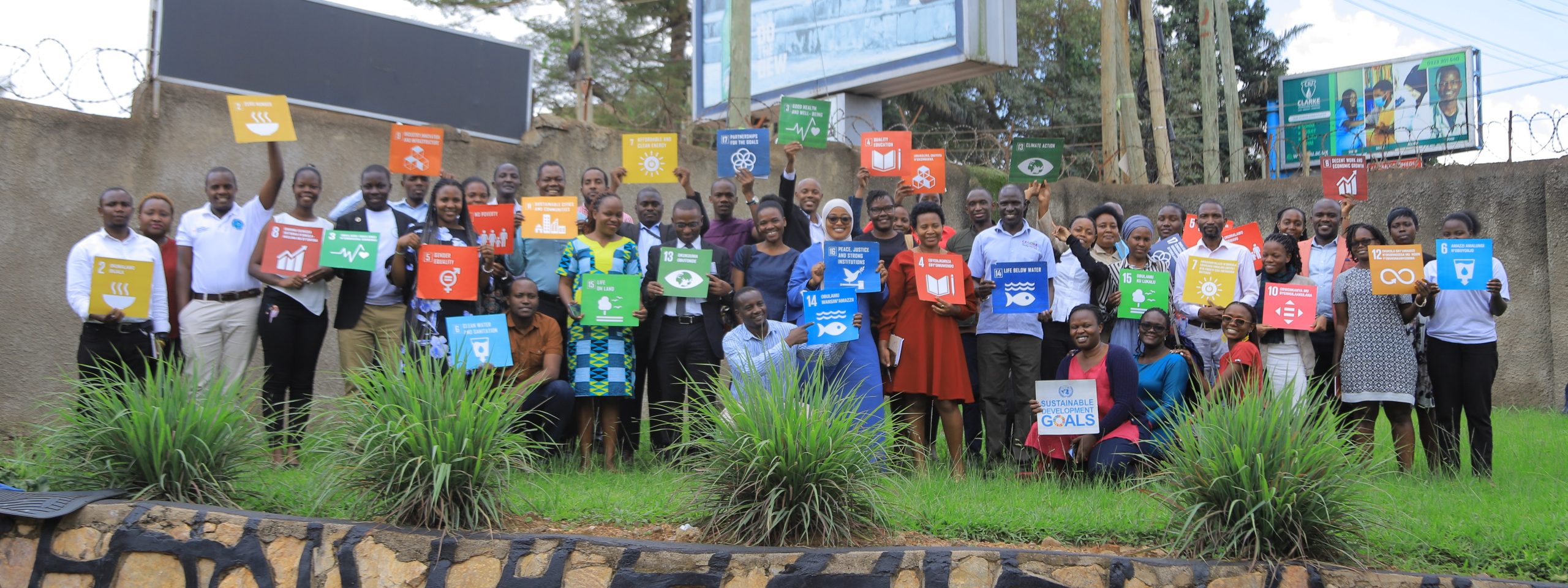
The Untapped Potential of Community Philanthropy to Drive the Agenda 2030 for Sustainable Development.
The Sustainable Development Goals (SDGs) provide a set of global goals related to environmental, political and economic challenges that we face as humanity. They cover aspects that affect us all and, therefore, invite us to build a sustainable, safer and more prosperous planet for all. The SDGs allow us to create a solid foundation for future generations to live dignified lives and to #LeaveNoOneBehind. They make a compelling case for the love of humanity – the essence of philanthropy.
In 1946, when ‘development’ was popularised as an international objective, it marked a shift towards viewing development as a structured and intentional process led by states and international organisations. However, even before then, there was ‘development’, which was driven by communities themselves to improve their lives. It was not externally instigated or funded. There were no donors, no foundations, and no High-Net-Worth individuals. There were High-Net-Heart individuals. In the true spirit of Ubuntu, Ugandans have often cared for one another. They have always been givers of charity.
Uganda National NGO Forum (UNNGOF), through its Philanthropy for Development (#Giving4Devt) programme1, is primed to deepen this local giving spirit to drive lasting change. UNNGOF’s point of departure is that community transformation ought to be community-driven and not built around externally initiated policy frameworks, which often constitute the primary source of funding and strategic priorities. We are acutely aware that overdependence on external funding puts communities in a weak negotiation position. Instead of ‘partnerships’, we have had ‘funding relationships’, with money being the blood in the veins and arteries of the relationship. Our dream of community philanthropy is intended to mitigate unequal power relations and grow towards partnership building based on equity and empathy.
UNNGOF seeks to promote community philanthropy as an empowering practice rooted in Uganda’s cultural traditions of mutual aid and generosity. The ‘Sense-Making Policy Paper One – The Meaning and Practice of Philanthropy in Uganda’, produced as part of our knowledge brokerage work, highlights that philanthropy in Uganda embodies the spirit of Ubuntu – a communal ethos of reciprocity, sharing and interdependence. This spirit is captured in Uganda’s languages: Obwa Sselunganda (Baganda), Obuntu (Ankole), eitunganane (Iteso), and Ba oa’ baa si (Lugbara), all emphasising the interconnectedness of giving and community well-being. This indigenous approach to giving fosters community-driven initiatives, where individuals and communities act as co-investors and co-implementers of development efforts. By building on these local traditions of generosity and cooperation, philanthropy can accelerate the implementation of the SDGs, addressing social, economic, and environmental challenges in line with the principle of leaving no one behind.
UNNGOF has registered successes under its Matched Funding Programme2, where communities together with local civil society actors have co-designed development projects and mobilised 50% of the targeted resources, with UNNGOF – supported by Wilde Ganzen – matching the remaining 50%. An example is the Batwa Community in the Rubanda district, which has leveraged community philanthropy to fit into the capitalist economy after being displaced from the forest reserve. In the 1990s, the Batwa, who had long lived in the equatorial forests, were ordered by the government to vacate their ancestral homes in an attempt to protect biodiversity and promote tourism. This led to the establishment of Mgahinga National Park, Bwindi Impenetrable National Park and Echuya Forest Reserve. The Batwa lived in South-Western Uganda in Bundibugyo, Kabale, Kisoro and Rukungiri districts. Once rooted in communal living, hunting and herbal medicine, the Batwa were forced to adapt to a new way of life dictated by monetary systems, leaving them marginalised and struggling to integrate into a drastically different socio-economic reality. In an attempt to support them in making ends meet, the community in Ikamiro parish, Muko Sub-county – Rubanda district, made a bold move to mobilise local resources to enhance their potential. Under the auspices of Kigezi Orphans & Vulnerable Children Living with HIV/AIDS (KADOLHA), the community has made a generous effort to support young women with skills in tailoring. Community members were inspired to give whatever they could to breathe life into the Batwa community. Some offered sewing machines, tailoring clothes and money to buy items, while others offered their knowledge and skills.
Trust and the spirit of Ubuntu were at the heart of the above success. With project ideas generated and supported by the community, givers and receivers placed immense value on trust. Community members took full responsibility for monitoring the project’s progress, and their pride in the outcomes is evident. The local organisation, meanwhile, played a supportive role, facilitating linkages and providing guidance. This is a true testament to how locally-led development manifests.
Therefore, as the world continues to explore innovative ways to accelerate the implementation of the 2030 Agenda for Sustainable Development, there is a need to pay closer attention and intentionally foster transformative partnerships with philanthropic organisations, community foundations, and individual givers to actualise Goal 17 (Partnerships for the Goals) so that, wherever we are in the world, we can achieve the much-desired goal of sustainable development. Achieving this kind of development path will require development practitioners to try out new ideas/approaches and be ready to adapt when initiatives do not work out as expected.
Authored by Robert Ninyesiga and originally published by WINGS.



